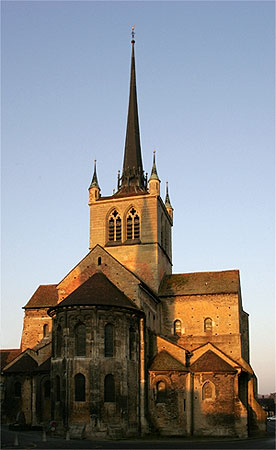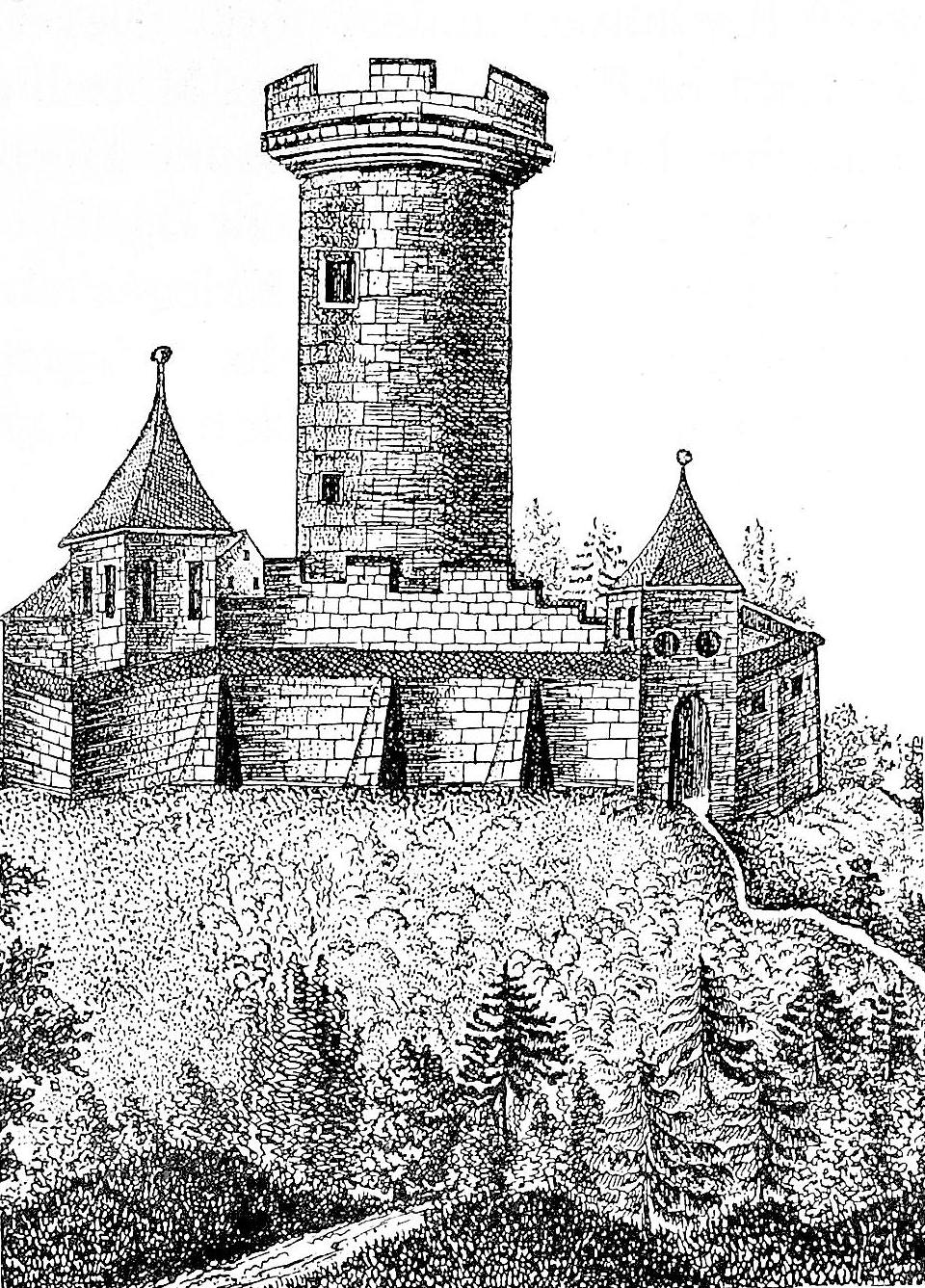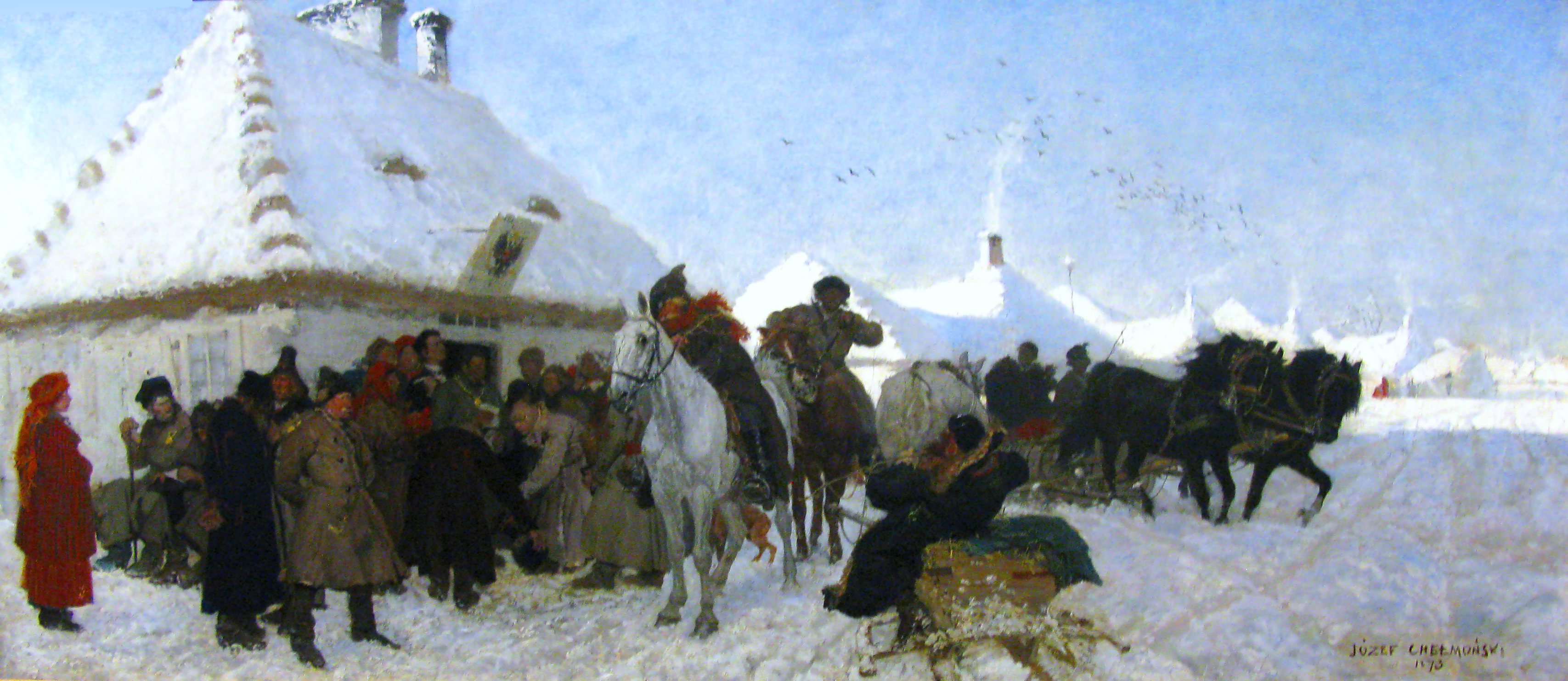|
Peterlingen Priory
Payerne Priory (also known as Payerne Abbey, Abbey of Our Lady of Payerne or Peterlingen Priory; Latin: monasterium Paterniacense) was a Cluniac monastery at Payerne, in Vaud, Switzerland. The monastery is a Swiss heritage site of national significance. History It was founded between 950 and 960 by the Burgundy royal family and especially by Queen Bertha of Burgundy. In 965, the Empress Adelaide placed the priory under Cluny Abbey. On 2 February 1033, Emperor Conrad II held an assembly, was elected, and crowned King of Burgundy at the abbey. In the first half of the 12th century, the monks falsified a number of documents as "Testament of Queen Bertha". With the fake documents they appropriated a number rights that they were not entitled to exercise. The priory was first directly managed by the two abbots from Cluny, Odilo and Maiolus, both of whom lived several times in Payerne. Starting in 1050, Cluny pulled back slightly from directly administering the priory, a ... [...More Info...] [...Related Items...] OR: [Wikipedia] [Google] [Baidu] |
Latin
Latin (, or , ) is a classical language belonging to the Italic branch of the Indo-European languages. Latin was originally a dialect spoken in the lower Tiber area (then known as Latium) around present-day Rome, but through the power of the Roman Republic it became the dominant language in the Italian region and subsequently throughout the Roman Empire. Even after the fall of Western Rome, Latin remained the common language of international communication, science, scholarship and academia in Europe until well into the 18th century, when other regional vernaculars (including its own descendants, the Romance languages) supplanted it in common academic and political usage, and it eventually became a dead language in the modern linguistic definition. Latin is a highly inflected language, with three distinct genders (masculine, feminine, and neuter), six or seven noun cases (nominative, accusative, genitive, dative, ablative, and vocative), five declensions, four verb conjuga ... [...More Info...] [...Related Items...] OR: [Wikipedia] [Google] [Baidu] |
Ulrich Of Zell
Ulrich of Zell, also known as Wulderic, sometimes of Cluny or of Regensburg (c. 1029 – 1093), was a Cluniac reformer of Germany, abbot, founder and saint. Life Ulrich was born at Regensburg in Bavaria (formerly also known as Ratisbon) in early 1029. His father Bernhold was from Bavaria; his mother Bucca from Swabia, a niece of Bishop Gebhard II of Regensburg and also related to Ulrich of Augsburg. Pious and wealthy, they were childless for many years and made a pilgrimage to Magnus of Füssen, vowing to dedicate a son to the religious life. Ulrich was probably educated at the school of St. Emmeram's Abbey, along with William of Hirsau, with whom he remained friends throughout his life, but in 1043 he was called to the court of his godfather, Henry III, King of the Germans where he acted as page to Queen Agnes, who was of the ducal house of Aquitaine, patrons of the reforming Abbey of Cluny. Ulrich later had to leave the court because his father had been accused of co ... [...More Info...] [...Related Items...] OR: [Wikipedia] [Google] [Baidu] |
House Of Savoy
The House of Savoy ( it, Casa Savoia) was a royal dynasty that was established in 1003 in the historical Savoy region. Through gradual expansion, the family grew in power from ruling a small Alpine county north-west of Italy to absolute rule of the Kingdom of Sicily from 1713 to 1720, when they were handed the island of Sardinia, over which they would exercise direct rule from then onward. Through its junior branch of Savoy-Carignano, the House of Savoy led the Italian unification in 1860 and ruled the Kingdom of Italy until 1946; they also briefly ruled the Kingdom of Spain in the 19th century. The Savoyard kings of Italy were Victor Emmanuel II, Umberto I, Victor Emmanuel III, and Umberto II. The last monarch reigned for a few weeks before being deposed following the institutional referendum of 1946, after which the Italian Republic was proclaimed. History The name derives from the historical region of Savoy in the Alpine region between what is now France and Italy. Over ti ... [...More Info...] [...Related Items...] OR: [Wikipedia] [Google] [Baidu] |
House Of Zähringen
The House of Zähringen (german: Zähringer) was a dynasty of Swabian nobility. The family's name derived from Zähringen Castle near Freiburg im Breisgau. The Zähringer in the 12th century used the title of Duke of Zähringen, in compensation for having conceded the title of Duke of Swabia to the Staufer in 1098. The Zähringer were granted the special title of Rector of Burgundy in 1127, and they continued to use both titles until the extinction of the ducal line in 1218. The territories and fiefs held by the Zähringer were known as the 'Duchy of Zähringen' (), but it was not seen as a duchy in equal standing with the old stem duchies. The Zähringer attempted to expand their territories in Swabia and Burgundy into a fully recognized duchy, but their expansion was halted in the 1130s due to their feud with the Welfs. Pursuing their territorial ambitions, the Zähringer founded numerous cities and monasteries on either side of the Black Forest, as well as in the western S ... [...More Info...] [...Related Items...] OR: [Wikipedia] [Google] [Baidu] |
Bailiff
A bailiff (from Middle English baillif, Old French ''baillis'', ''bail'' "custody") is a manager, overseer or custodian – a legal officer to whom some degree of authority or jurisdiction is given. Bailiffs are of various kinds and their offices and duties vary greatly. Another official sometimes referred to as a ''bailiff'' was the ''Vogt''. In the Holy Roman Empire a similar function was performed by the ''Amtmann''. British Isles Historic bailiffs ''Bailiff'' was the term used by the Normans for what the Saxons had called a '' reeve'': the officer responsible for executing the decisions of a court. The duty of the bailiff would thus include serving summonses and orders, and executing all warrants issued out of the corresponding court. The district within which the bailiff operated was called his '' bailiwick'', even to the present day. Bailiffs were outsiders and free men, that is, they were not usually from the bailiwick for which they were responsible. Throughout Nor ... [...More Info...] [...Related Items...] OR: [Wikipedia] [Google] [Baidu] |
Vogt
During the Middle Ages, an (sometimes given as modern English: advocate; German: ; French: ) was an office-holder who was legally delegated to perform some of the secular responsibilities of a major feudal lord, or for an institution such as an abbey. Many such positions developed, especially in the Holy Roman Empire. Typically, these evolved to include responsibility for aspects of the daily management of agricultural lands, villages and cities. In some regions, advocates were governors of large provinces, sometimes distinguished by terms such as (in German). While the term was eventually used to refer to many types of governorship and advocacy, one of the earliest and most important types of was the church advocate (). These were originally lay lords, who not only helped defend religious institutions in the secular world, but were also responsible for exercising lordly responsibilities within the church's lands, such as the handling of legal cases which might require the u ... [...More Info...] [...Related Items...] OR: [Wikipedia] [Google] [Baidu] |
Holy Roman Emperor
The Holy Roman Emperor, originally and officially the Emperor of the Romans ( la, Imperator Romanorum, german: Kaiser der Römer) during the Middle Ages, and also known as the Roman-German Emperor since the early modern period ( la, Imperator Germanorum, german: Römisch-deutscher Kaiser, lit, Roman-German emperor), was the ruler and head of state of the Holy Roman Empire. The title was held in conjunction with the title of king of Italy (''Rex Italiae'') from the 8th to the 16th century, and, almost without interruption, with the title of king of Germany (''Rex Teutonicorum'', lit. "King of the Teutons") throughout the 12th to 18th centuries. The Holy Roman Emperor title provided the highest prestige among medieval Roman Catholic monarchs, because the empire was considered by the Roman Catholic Church to be the only successor of the Roman Empire during the Middle Ages and the early modern period. Thus, in theory and diplomacy, the emperors were considered '' primus inter ... [...More Info...] [...Related Items...] OR: [Wikipedia] [Google] [Baidu] |
Chambéry
Chambéry (, , ; Arpitan: ''Chambèri'') is the prefecture of the Savoie department in the Auvergne-Rhône-Alpes region of eastern France. The population of the commune of Chambéry was 58,917 as of 2019, while the population of the Chambéry metropolitan area was 253,430. It has been the historical capital of the Savoy region since the 13th century, when Amadeus V, Count of Savoy, made the city his seat of power. Together with other alpine towns Chambéry engages in the Alpine Town of the Year Association for the implementation of the Alpine Convention to achieve sustainable development in the Alpine Arc. Chambéry was awarded Alpine Town of the Year 2006. Geography Chambéry was founded at a crossroads of ancient routes through the Dauphiné (''Dôfenâ'') region of France, Switzerland, and Italy, in a wide valley between the Bauges and the Chartreuse Mountains on the Leysse River. The metropolitan area has more than 125,000 residents, extending from the vineyard slopes of ... [...More Info...] [...Related Items...] OR: [Wikipedia] [Google] [Baidu] |
Dean (Christianity)
A dean, in an ecclesiastical context, is a cleric holding certain positions of authority within a religious hierarchy. The title is used mainly in the Roman Catholic Church, the Anglican Communion, and many Lutheran denominations. A dean's assistant is called a sub-dean. History Latin ''decanus'' in the Roman military was the head of a group of ten soldiers within a '' centuria'', and by the 5th century CE, it was the head of a group of ten monks. It came to refer to various civil functionaries in the later Roman Empire.''Oxford English Dictionary'' s.v.' Based on the monastic use, it came to mean the head of a chapter of canons of a collegiate church or cathedral church. Based on that use, deans in universities now fill various administrative positions. Latin ''decanus'' should not be confused with Greek ''diákonos'' (διάκονος),' from which the word deacon derives, which describes a supportive role. Officials In the Roman Catholic Church, the Dean of the Colleg ... [...More Info...] [...Related Items...] OR: [Wikipedia] [Google] [Baidu] |
Vicar General
A vicar general (previously, archdeacon) is the principal deputy of the bishop of a diocese for the exercise of administrative authority and possesses the title of local ordinary. As vicar of the bishop, the vicar general exercises the bishop's Ordinary (church officer), ordinary executive (government), executive power over the entire diocese and, thus, is the highest official in a diocese or other particular church after the diocesan bishop or his equivalent in canon law. The title normally occurs only in Western Christian churches, such as the Latin Church of the Catholic Church and the Anglican Communion. Among the Eastern churches, the Mar Thoma Syrian Church of Kerala uses this title and remains an exception. The title for the equivalent officer in the Eastern churches is syncellus and protosyncellus. The term is used by many religious orders of men in a similar manner, designating the authority in the Order after its Superior General. Ecclesiastical structure In the R ... [...More Info...] [...Related Items...] OR: [Wikipedia] [Google] [Baidu] |
Commandry (feudalism)
In the Middle Ages, a commandery (rarely commandry) was the smallest administrative division of the European landed properties of a military order. It was also the name of the house where the knights of the commandery lived.Anthony Luttrell and Greg O'Malley (eds.), ''The Countryside Of Hospitaller Rhodes 1306–1423: Original Texts And English Summaries'' (Routledge, 2019), p. 27. The word is also applied to the emoluments granted to a commander. They were the equivalent for those orders to a monastic grange. The knight in charge of a commandery was a commander. Etymology The word derives from French ''commanderie'' or ''commenderie'', from mediaeval Latin ''commendaria'' or ''commenda'', meaning "a trust or charge", originally one held ''in commendam''. "commandery , commandry, n." OED Online, Oxford University Press, December 2018, https://www.oed.com/view/Entry/36962. Accessed 9 December 2018. Originally, commandries were benefices, particularly in the Church, held ''in comm ... [...More Info...] [...Related Items...] OR: [Wikipedia] [Google] [Baidu] |
Diocesan Chancery
A diocesan chancery is the branch of administration which handles all written documents used in the official government of a Catholic or Anglican diocese. It is in the diocesan chancery that, under the direction of the bishop or his representative (the local ordinary), all documents which concern the diocese are drawn up, copied, forwarded, and a record kept of all official writings expedited or received. The official charged with the execution of these duties is known as the diocesan chancellor. Anglican dioceses Diocesan chanceries may be universal, but there is nothing in the common ecclesiastical law concerning their creation and equipment. The explanation lies in the very nature of this law, which provides only for what is general and common, and takes no account of local means of administration, which it abandons to the proper authority in each diocese, the concrete circumstances offering always great variety and calling for all possible freedom of action. Although, as a ... [...More Info...] [...Related Items...] OR: [Wikipedia] [Google] [Baidu] |





